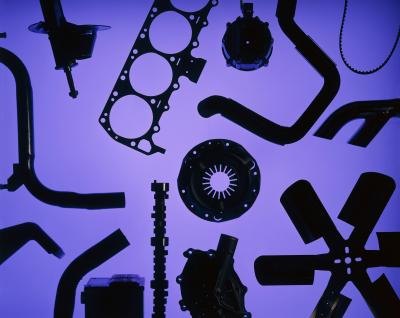Monday, November 25, 2013
Why Did My Head Gasket Fail

When a head gasket fails, coolant begins to leak into the crankcase and mixes with the engine oil. This mixture creates a milky-like substance that will coat anything and everything it touches. Coolant will ruin the crankshaft and connecting rod bearings, and the milky remnants of the mixture will clog oil passages, causing precisely oiled components to fail. In most cases, a blown head gasket can be prevented if the driver knows what leads to head gasket failure.
Overheating
Overheating is the No. 1 cause of head gasket failure. When the engine overheats, the engine head and block will expand and can crush the head gasket, creating an immediate leak. Even if the engine doesnt get hot enough to warp the cylinder head, excessive operation at high temperatures can cause the material on the gasket to become brittle and crack, creating a number of leaks.
Preignition
Preignition puts serious strain on the head gasket and is commonly associated with an overheating engine. Preignition occurs when hot spots develop within the combustion chamber, which become a source for ignition. When this happens, combustion will occur before the spark plug actually fires. The force created by the premature combustion puts undo stress on the head gasket and over time will cause it to fail.
Detonation
Detonation, also known as spark knock, is essentially improper combustion. When this happens, multiple flames are created inside the combustion chamber instead of one, causing a sudden spike in pressure within the combustion chamber. This extra pressure causes excessive stress to the head gasket as well as the pistons, valves and piston-connecting rods and is accompanied by a pinging noise during acceleration. Detonation is commonly caused by fuel with a low octane rating, a problem within the exhaust gas recirculation system and over-advanced spark timing.
Improper Cylinder Head Installation
If major engine work was recently performed and the cylinder head had to be removed, it is possible the mechanic doing the work failed to torque the head bolts properly or failed to torque the head bolts in the proper sequence during installation. Head gaskets require a certain amount of pressure to be maintained between the cylinder head and the engine block to load and keep a good and tight permanent seal.
Preventative Measures
Always keep an eye on the temperature gauge. Any time overheating begins to occur, shut the engine down, and diagnose and repair the problem. If you notice spark knock or pinging while driving, increase the octane rating of your fuel and check the exhaust gas recirculation system for faults. On older cars, adjust your air-to-fuel ratio accordingly. It is also very important to keep up on the maintenance of the engine ignition system; if your vehicle uses a distributor system, replace the cap and rotor according to the manufacturers maintenance schedule and always replace your plugs and wires every 15,000 miles or so for optimal performance.
No comments:
Post a Comment